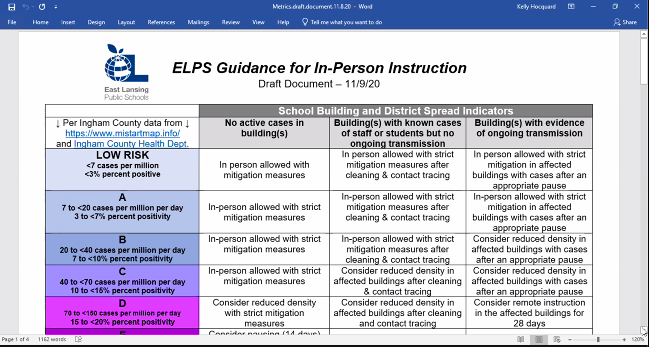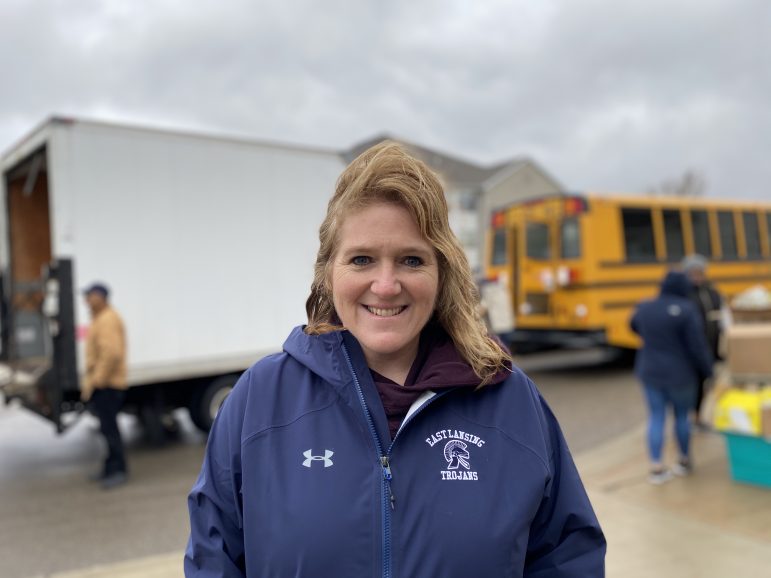
The East Lansing School Board grappled with plans for winter school and how teachers can use a three-tier mental health system to help online students. The board’s Nov. 9 meeting, over Zoom, focused on returning from remote learning to in-person instruction after winter break.
Superintendent Dori Leyko showed graphics and presented a document (above) with guidance for in-person instruction.

Indri Maulidar
Dori Leyko, superintendent of East Lansing Public Schools.Leyko said the COVID-19 dashboard on the district’s website shows suspected and confirmed cases. She said the district plans to offer winter athletics but may delay them until after the break.
She said the district will not be running middle school interscholastic sports, but the city is looking to set up basketball opportunities within the community and smaller pods.
Board Vice President Terah Chambers asked if the basketball program would be available to students who aren’t East Lansing residents, and Leyko said the city would make that call.
Three-tier approach to mental health issues
The meeting also featured a presentation from the East Lansing Public Schools Mental Health Advisory Committee led by Natalie Moser, Matt Morales and Heather Findley.
“Our primary goal is to collaborate on social-emotional learning and programming that is developmentally appropriate and is aligned across the district,” Moser said. “For us, it’s important that there is some degree of consistency in programming from K-12, so that kids and staff have a common language. It’s also important to recognize that needs vary widely among development, so we take that into consideration.”
Morales went over the tiers of the program and the objectives of each. Morales said committee tries to support staff and families.
“Along with educating our students, we’ve really made some concerted efforts to better communicate with our staff to make sure they have proper tools and awareness to address our students who are struggling with social-emotional or mental health challenges,” Morales said.
Findley’s addressed “The end of the silence” program.
She said it basically “is a 50-minute presentation that includes a 25-minute PowerPoint presentation where we really underscore the warning signs of mental health challenges, and substance abuse challenges that people might see for themselves or for their peers,” Findley said.
Board Secretary Chris Martin said a counselor from another district told him, “The programming we provide for mental health in this district is the gold standard for mental health in the area.”
After the meeting, Chambers said being on the board in these times feels weighty, and there are a lot of important things on board members’ plates right now. She said, “Being a school board member has also felt important, but I think everyone feels a particular sense of urgency right now.”
Chambers said, “Paying attention to mental health in our school district is just as important as the focus on academics. This is especially true right now when most of our students are learning at home. But while the MHAC is particularly critical now, it’s also true that this committee has been in existence for several years and has been integral to our ongoing work.”
Chambers said everyone hopes to get back to school after winter break.
“I know that our administrative team and our teachers are working diligently to put processes in place to promote safety and learning for a January return to in-person instruction for those who want to participate,” Chambers said. “It seems prudent to see where the COVID numbers are then to make the final call, but I feel optimistic about it.”